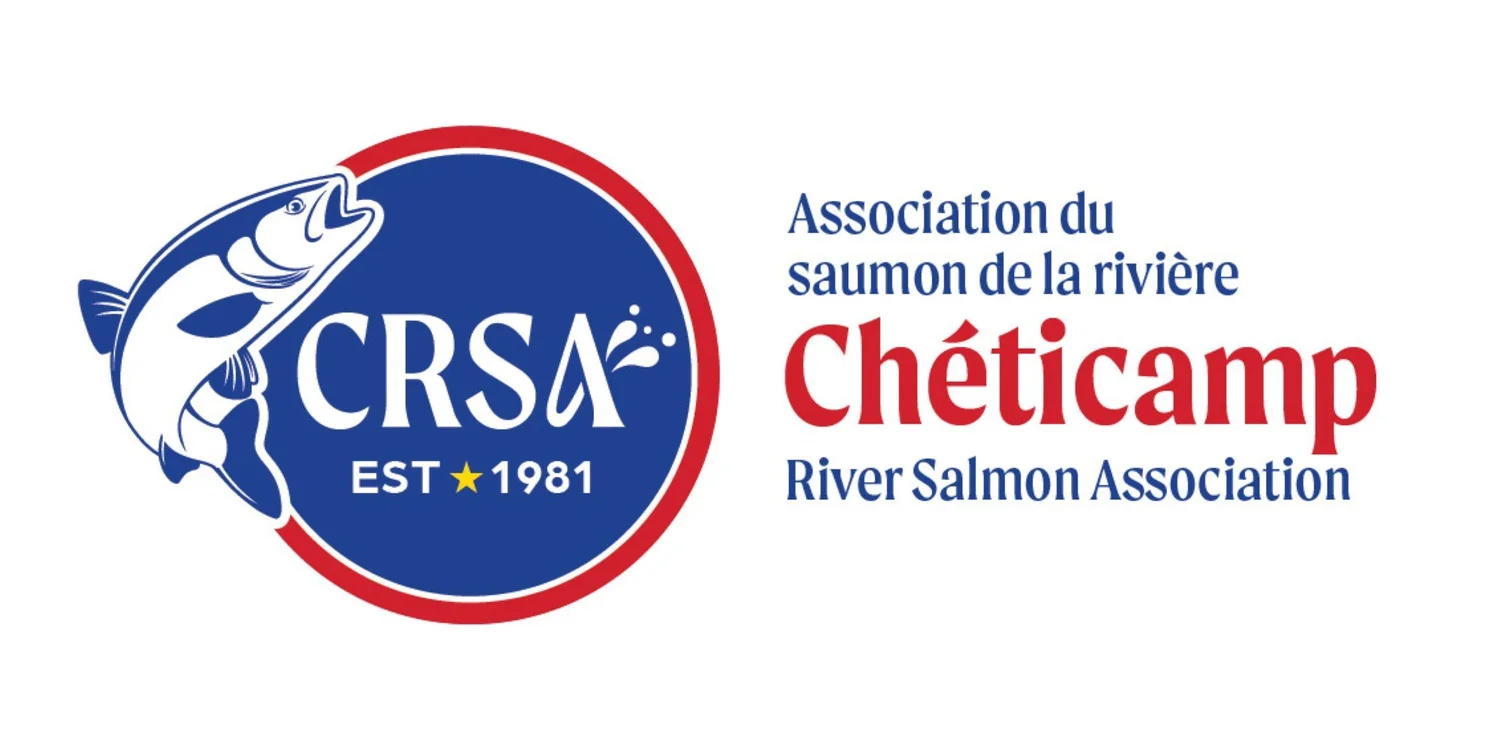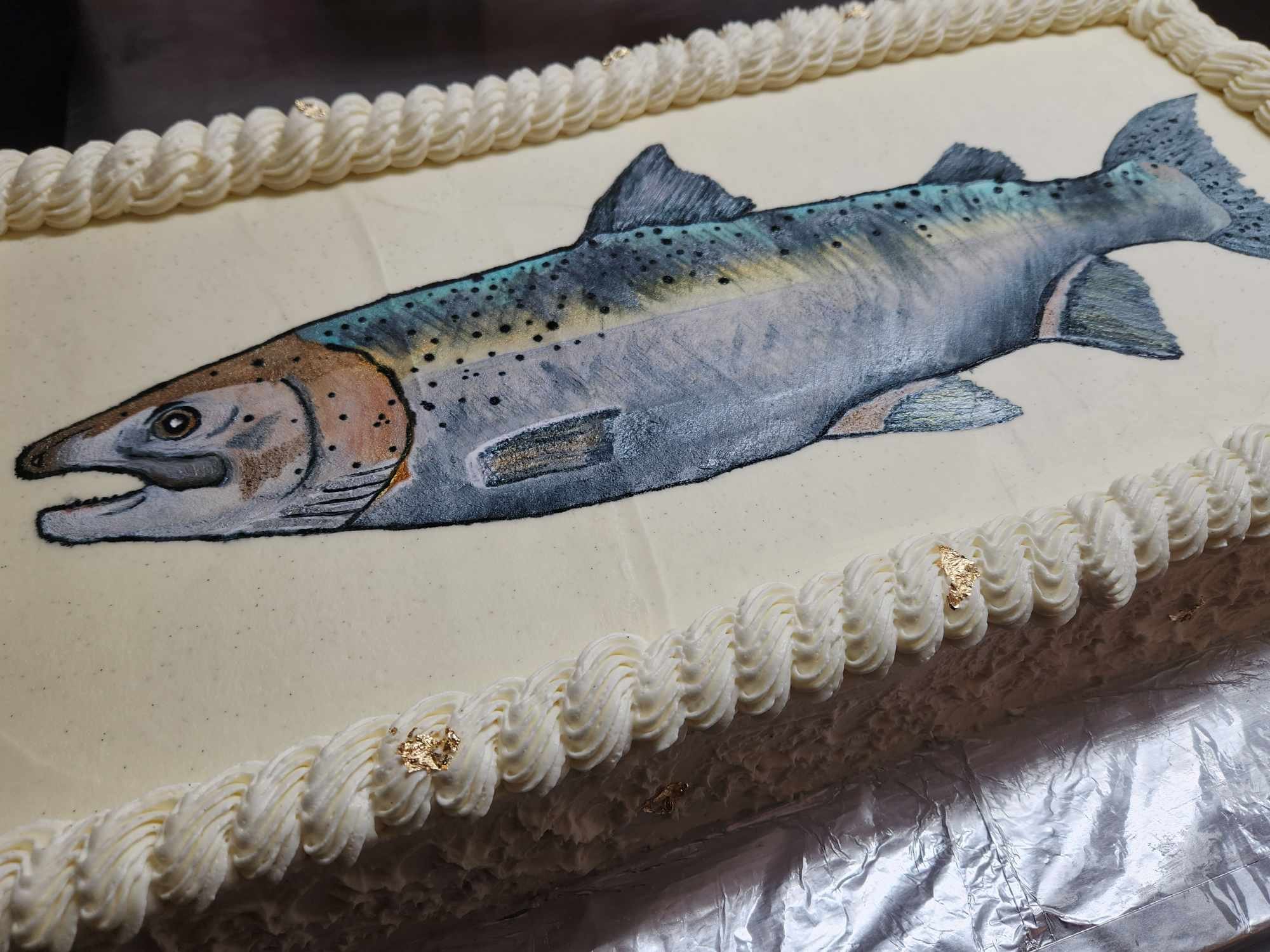Cheticamp and Margaree Salmon Associations will be working together as part of new Wild Salmon Watersheds conservation program
The Cheticamp River Salmon Association (CRSA) and the Margaree Salmon Association (MSA) are celebrating the launch of an ambitious new conservation program. The CRSA and MSA are excited to have more opportunities for collaboration moving forward as they partner in the Atlantic Salmon Federation’s new Wild Salmon Watersheds (WSW) program.
An official launch event for the Cheticamp-Margaree Wild Salmon Watersheds partnership was held on August 23rd in the Cheticamp campground at Cape Breton Highlands National Park. This event was organised by the ASF with help from its local partners – the CRSA and MSA – as a way of raising awareness of the new Wild Salmon Watersheds program and celebrating the start of increased collaboration and a commitment of additional resources to help conserve Atlantic salmon in the Cheticamp and Margaree watersheds.
Official cake cutting as part of the Cheticamp-Margaree Wild Salmon Watersheds launch event. Pictured from left to right: President of the MSA Paul McNeil, with the ASF’s Executive Director of Regional Programs Nathan Wilbur, and CRSA President Rene Aucoin.
Local baker Tracy McLellan made a lovely - and tasty! - cake to help celebrate the launch of the new program.
The Cheticamp and Margaree watersheds were chosen to participate in this new ASF-led program because of their healthy populations of Atlantic salmon and the existence of well-established local conservation groups (both the CRSA and MSA have been around for over 40 years). Instead of focusing resources on watersheds with more threatened populations of salmon, the ASF chose to increase support for groups working in watersheds with relatively healthy populations of Atlantic salmon. ASF’s goal is to provide groups like the CRSA and MSA with more funding and access to additional resources – including specialized equipment and expertise – to be able to better manage these healthier populations of Atlantic salmon and prevent further declines over the long-term.
Kris Hunter – ASF’s Regional Director for Wild Salmon Watersheds – sharing information on the new Atlantic salmon conservation program.
MSA President Paul McNeil and CRSA President Rene Aucoin also addressed the crowd as part of the event.
Both the CRSA and MSA welcome the increased support and see ASF’s new program as a way to help move their organizations away from short-term planning and focusing on restoration activities that are often reactive in nature. The CRSA and MSA are hoping that their involvement in the WSW program will make it easier to engage in more long-term monitoring, in-depth watershed-level planning, and efforts to build resiliency to climate change. Other important long-term partners, including the Nova Scotia Salmon Association and Parks Canada, will also continue to provide support and other resources to help reach these goals as well.
A good crowd turned out at the Cheticamp campground in Cape Breton Highlands National Park for the launching of the Wild Salmon Watersheds program.
While the Cheticamp and Margaree associations were chosen to participate in the start-up phase of the Wild Salmon Watersheds program – along with groups working on the Nepisiguit River in New Brunswick and the Terra Nova River in Newfoundland and Labrador, ASF hopes to grow the program and eventually establish a much larger network of Wild Salmon Watersheds across Eastern Atlantic Canada.





